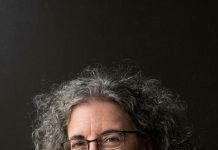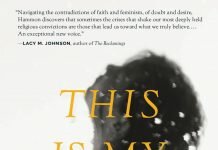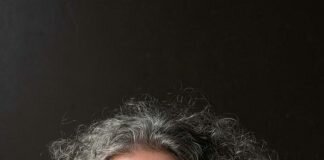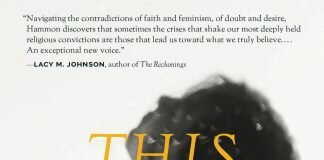I was 38 when I sat down to write my memoir. Although the project’s theme was my working on a trail crew in Alaska for a season, flashbacks to my childhood are a large part of the story. My dad is in many of those flashbacks: the good times, the abuse; I wrote about all of it. While I knew it would be difficult, I wanted to tell my story. I also wanted to see if I could tell my story. I made a deal with myself: if my dad was too painful to write about, I would stop, knowing my healing wasn’t complete. I would pause the writing of my memoir until I had a better handle on things. I owed that to myself and to my readers.
In the first scene, I am nine. He had snapped and called me a bitch. I still recall it clearly: how we were all outside when the incident took place, and how I turned and ran, hearing my mom begging him to go after me. After I had written that scene, I sat back to process it. Things seemed OK; no tears, no rushing emotions. I wrote another scene, a much more intense one (which would become the climax of my story). Still, I didn’t feel much of a reaction. This was affirming to me; it was validation that all the therapy, all the work I had done was meaningful.
When I was 16 and my parents finally divorced, I tried to maintain a relationship with my dad, strange as it sounds. There had been good times, moments when he was completely loving and appropriate toward me. Problem was, those few-and-far-between moments gave me hope for more. It was when I cut ties with him that my healing journey began. The journey was slow, with fits and starts, and stretched out more than a decade. For years I convinced myself that I was healed, that I didn’t have any work to do. It was in my mid-20s that I started looking at my life, my choices and behavior patterns: the drinking, the drugs, the promiscuity, the distractions I clambered onto so I wouldn’t have to look inside. Something started to feel uncomfortable. Really uncomfortable. It took another few months, but I quit the drugs, the guys and much of the drinking. I got into therapy and dove deep. For the first time, I asked myself why. I (rhetorically and figuratively) asked my dad why. I attended counseling once a week for several months, then every other week, then over the phone as needed (by then I had relocated).
Just how much healing was needed before I could write, and write well? How did I know I was ready? My barometer was if I was crying, overwhelmed, or scared as I was writing, then I wasn’t ready. To write in my journal, yes (and to experience writing as an act of healing), but not as a work of art.
In writing my memoir, my biggest surprise was my desire to show the reader the good moments with my dad. I wanted to show him as a flawed human rather than a monster. It would give the reader some context of our complicated relationship, my pain and my hesitance to let him go.
In order to tell my story in the way I wanted, I needed distance. Distance gives us perspective; it defines the edges of our art, and brings texture and tone to our work, all which serve to help guide the reader through our narrative. I also needed to forgive. I had to forgive my dad. I also had to forgive my mom and everyone else for allowing him to do those things to me. I had to forgive myself for not standing up to him. Being angry runs the risk of making the reader uncomfortable, and not in a good way. The reader is not a therapist. As creators, writing can serve to gauge our healing. Healing, in turn, gives our work the chance to be self-affirming. It can turn writing about trauma into a work of art, which is nothing short of hard-earned magic.
Photo by Green Chameleon












